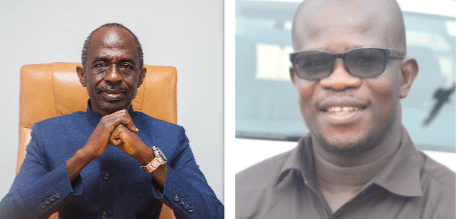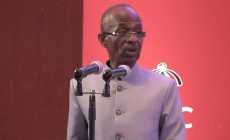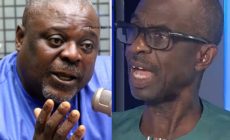Kpessa-Whyte and Asiedu Nketiah to testify to support Mahama’s petition
- Posted on
- Comment

John Mahama has finally filed two witness statements to support his election petition before the Supreme Court.
Checks at the Supreme Court registry shows that the former president will be relying on two witness statements, from Michael Kpessa-Whyte, a leading member of the National Democratic Congress (NDC) and Mahama representative at the EC National Collation Centre (the strong room) during the 2020 presidential and parliamentary elections, and Johnson Aseidu Nketiah, the general secretary of the NDC. This is in marked contrast to the five witnesses his legal team initially indicated.
Interrogating the interrogatories
The Supreme Court ordered Mahama (the petitioner) on 20 January 2021 to file his witness statements but he failed to comply.
When the court convened on the morning of 26 January, Tony Lithur, a lawyer for the petitioner, told the court that the Mahama legal team was unable to file witness statements because members were hoping that the court would hear a review application they had filed on their dismissed application to serve interrogatories on the Electoral Commission.
The answers they were expecting from the interrogatories, he argued, would help them shape their witness statements.
The seven-member Supreme Court panel, presided over by Chief Justice Kwasi Anin-Yeboah, did not take kindly to the seeming disregard of judges’ orders by the petitioner. However, the court decided to give the petitioner a second opportunity to file witness statements, in compliance with the orders of the court, which were issued on 20 January 2021, or risk forcing the court to dismiss the petition as stipulated in CI 99, the Supreme Court rules, passed in 2016, governing the hearing of election petitions.

The seven justices of the Supreme Court at the sitting on 26 January were noticeably unhappy that the petitioner had disregarded their orders to file witness statements. After exchanges between the bench and Lithur, the court gave them up to close of business on Wednesday 27 January to comply with the order.
According to the Supreme Court, it was relying solely on rule 69 (4B) of the Constitutional Instrument CI 99, which states: “The court may (a) dismiss the petition, where the petitioner fails to file the processes regarding the petition within the specified time; or (b) hear and determine the petition, where the respondents fail to file their answers or the processes regarding their answer within the specified time.”

To this end, Chief Justice Anin-Yeboah cautioned the petitioner and his lawyers that, should they fail to comply with the second window of opportunity they had been given, the court would deploy the dictates of rule 69 (4B) in full, which would mean that the petition would be dismissed.
Having complied with the Supreme Court’s reissued order by filing witness statements, the path is clear for the Supreme Court to move the case as set forward towards the actual trial.
The court will reconvene for hearing tomorrow, Thursday 28 January 2021.
-Asaase










 (Selorm) |
(Selorm) |  (Nana Kwesi)
(Nana Kwesi)